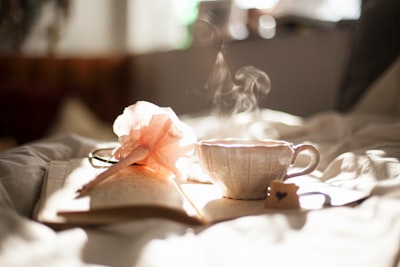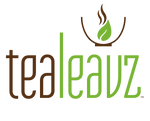Unwind and Rejuvenate: Explore the World of Caffeine Free Tea

In today's fast-paced world, finding moments of relaxation and rejuvenation is essential for our overall well-being. One way to achieve this is by indulging in a cup of tea. Some people need to limit their caffeine intake, but this doesn't mean they need to avoid tea.
While traditional loose leaf teas like black and green tea contain caffeine, there is a whole world of caffeine free tea blends that offer a soothing and calming experience.
In this blog post, we will explore the world of caffeine-free tea, its benefits, and the different types of teas available. So sit back, relax, and let's dive into the world of caffeine free tea.
Benefits of Caffeine Free Tea
Caffeine free tea is a great way to unwind and relax without the stimulation of caffeine. It has a variety of health benefits as caffeinated tea, such as providing antioxidants, supporting cardiovascular health, and aiding digestion. Caffeine free tea can also help you get a better night's sleep, reduce stress, and boost your immune system.
Supports Digestive Health
- Ginger tea can aid in digestion and relieve nausea and stomach discomfort.
- Fennel tea has carminative properties that can help alleviate bloating and indigestion.
Promotes Better Sleep
- Chamomile tea has natural sedative properties that can help improve sleep quality.
- Rooibos tea is caffeine-free and can aid in relaxation, making it a great choice before bedtime.
Reduces Stress and Anxiety
- Peppermint tea has a calming effect on the body and can help reduce stress and anxiety.
- Lavender tea is known for its soothing properties and can help promote relaxation.
Supports Digestive Health
- Ginger tea can aid in digestion and relieve nausea and stomach discomfort.
- Fennel tea has carminative properties that can help alleviate bloating and indigestion.
Exploring Different Types of Caffeine Free Tea
Caffeine free teas fall into two categories. There are naturally caffeine free teas and then there are caffeinated teas that have undergone a process to remove the caffeine.
Any teas that originate from the Camellia sinensis plant (known as true tea) contain caffeine. This includes black tea, green tea, white tea, and oolong. Some wonder if a delicate white tea is caffeine free. The caffeine levels are lower, but the fact that it comes from the same tea plant as black tea means it contains caffeine.
There are two ways to remove the caffeine from a true tea: chemical process or water process. If a tea undergoes the chemical removal of caffeine, it can also strip the health benefits of the tea.
Tea decaffeinated using the water method preserves more of the tea's health advantages. However once tea has been water processed, it can not be stored. So tea you find on the store shelf that is labeled as a decaffeinated tea, most likely underwent the chemical process.
How to Remove Caffeine from Tea with the Water Process
To make caffeine free black tea and caffeine free green tea:
- Make a cup of tea in hot water as usual.
- After 30 seconds, pour the steeped tea down the drain. Caffeine releases from the leaves more quickly than flavor, so you are pouring the caffeine down the drain.
- Re-steep the leaves. Each subsequent steep removes caffeine from the leaves, however it also removes flavor. Black tea, green tea, and oolong tea start with stronger flavor profiles that may withstand this process better than a delicate white tea.
- Reports have shown that this method can result in a 9% reduction in the level of caffeine, which may not be the result you are after.
For this reason, and this conversation, we are exploring only those teas (or tisanes) that are naturally caffeine free.

Types of Caffeine-Free Tea
There are many types of caffeine-free tea available, including herbal teas, rooibos tea, and fruit teas.
Caffeine free tea is also referred to as a tisane. Tisanes are infusions made from spices, leaves, roots, and berries of plants other than the Camellia sinensis plant.
Let’s take a look at the benefits of each type of tea:
Caffeine free Herbal Tea
Not all herbal tea is caffeine free. There are herbal teas that DO contain caffeine, such as Maté. From South America, maté is a traditional herbal drink that has a high caffeine content. It is made from the dried leaves of the yerba mate plant.
You can rest assured the teas that follow are 100% caffeine free.
Chamomile Tea
Known as a sleepy time tea, you really don't need to ask if chamomile is caffeine free. Chamomile tea has an aroma of freshly cut apples with a mellow, sweet, honey-like flavor.
- Helps to promote relaxation and reduce stress.
- Contains antioxidants that can help boost the immune system.
Peppermint Tea
Peppermint tea is popular for its cool, crisp aroma and smooth finish.
- May help relieve symptoms of colds and congestion.
- Has anti-inflammatory properties that may help reduce headaches and muscle pain.
Rooibos Tea
Rooibos is available in two varieties: red rooibos (fermented) and green rooibos (unfermented). Both varieties are naturally caffeine free. Rooibos has an earthy and slightly nutty taste with a natural sweetness that is gentle and smooth.
- Rich in antioxidants and unique polyphenols that are protective plant compounds that may help protect against the damage of free radicals
- Low in tannins making Rooibos a milder tea. It is a good choice for those who suffer digestive issues from high-tannin foods
Ginger Tea
Ginger tea has a flavor that is warming with a slightly spicy finish.
- Ginger tea can aid in digestion and relieve nausea and stomach discomfort.
- A delicious caffeine-free tea that studies show can reduce inflammation.
Caffeine free Chai Tea
While black tea is often find as a chai tea base, there are also naturally caffeine free chai tea.
- Turmeric Chai - The earthy flavor of turmeric blended with spiced flavors of ginger and clove, the sweetness of cinnamon, and a touch of fennel, finishing with a little kick of black peppercorn.
- Rooibos Vanilla Chai - Rooibos and chai spices are infused with ginger, orange, and vanilla bean flavor.
- Cinnamon Rooibos Chai - the warmth of cinnamon blended beautifully with the natural smooth, mellow flavor of the rooibos
- Pumpkin Spice - sweet and savory chai spices of cinnamon bark, cardamom, ginger root, cocoa nibs, and safflower. Cocoa nibs do contain caffeine, but it is negligible as a whole teaspoon contains about 4 mg of caffeine, and it is a small part of the blend.
Fruit Infusions
- Apple Cider Hot Toddy - A wintry-spiced herbal tea with warm, cozy flavors of orange, cranberry, cinnamon, a hint of ginger, and a bit of tartness from hibiscus
- Blood Orange Tea - A deep vibrant color and sweet, tangy flavor
- Kona Pineapple Herbal Tea - Luscious flavors of crisp apple, pineapple, and orange citrus with floral undertones
- Radiantly Raspberry - Tart, jammy, and fruity balanced with apples, rose hips, and hibiscus
Brewing and Enjoying Caffeine Free Tea
We always recommend making the process easy and enjoyable by using the proper tools. Using a tea infuser or tea basket makes steeping and clean up a breeze.
Even though the tea we have been discussing is caffeine free tea, you still should follow the instructions of each individual tea as steeping times and temperatures will vary between a Rooibos or fruit infusion.
As with any tea, feel free to add honey or lemon to your tea to enhance the flavors to your liking.
Conclusion
Caffeine-free tea offers a delightful and relaxing experience that can help us unwind and rejuvenate. Whether you prefer herbal teas, fruit infusions, or spice infusions, there is a wide variety of options to explore.
By understanding the benefits of caffeine-free tea and learning how to brew and enjoy it, you can create a soothing ritual that promotes well-being and tranquility in your daily life. So take a break, brew a cup of your favorite caffeine-free tea, and savor the moment of calmness it brings.








